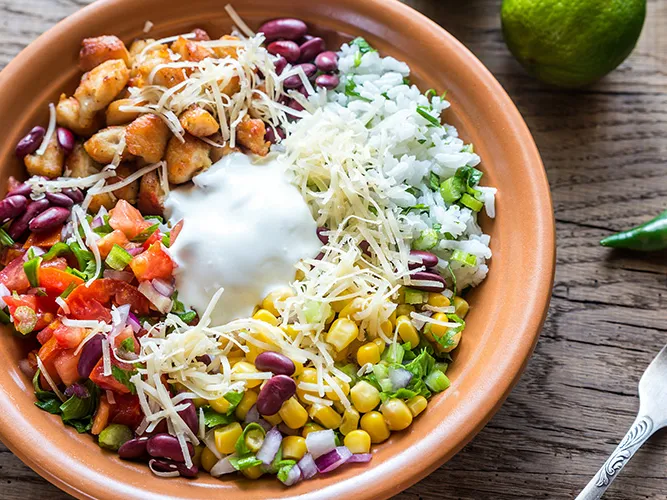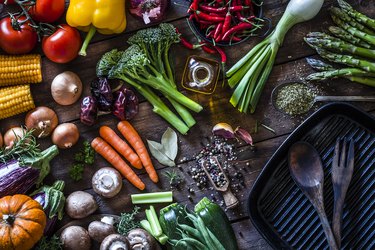
protein-rich food veg
Building Muscle and Health with Vegetarian Protein: 8 Supplements from the Comfort of Your Home”
Protein, which is the foundation of muscle development and restoration in bodies, frequently implies animal origins. Such as meat and eggs or dairy. However, more and more people are taking up a vegetarian or vegan diet. Looking for protein options that do not depend on packed supplements. 10 protein-rich vegetarian foods that you can add to your home-cooked meals for naturally increasing the overall intake of proteins.
1. Lentils:
These legumes are protein powerhouses providing about 18 grams of cooked protein per cup. Lentils are versatile and easy to incorporate into several dishes like soups, stews, or salads. They also contain fibre along with essential nutrients such as iron and folate.
2. Chickpeas:
Chickpeas, are a key ingredient in hummus and the foods. That can provide almost 15 grams of protein per cup when cooked. Chickpea snack roasted chickpeas are excellent crunchy food, and adding them to curries or salads enhances the taste of both along with protein.
3. Tofu:
Tofu comes from soy beans and is a very useful protein, providing approximately 20 grams per cup. This ingredient is perfect for stir-fries, scrambles or even as a stand-in meat in almost any dish because of its ability to soak up flavours.
4. Edamame:
Aside from being delicious, these young soybeans are also a nutritious snack and provide about 17 grams of protein per cup when cooked. Either steam or boil and they make a good addition to salads, soups or as snacks eaten on their own.
“Real food from nature fuels our bodies best. Choose natural over packaged for true nourishment”
-healwellhub
5. Chia Seeds:
5 grams of protein per ounce, with small chia seeds punching powerfully. The ability of these seeds to absorb liquid makes them suitable for adding in smoothies, used as a thickening agent on puddings or added into oatmeal.
6. Hemp Seeds:
Hemp seeds provide about 10 grams of complete protein per one-ounce serving and are a good source of omega-3 fatty acids. On top of a salad, in yoghurt or incorporated into the baked goods to boost protein.
7. Yogurt:
For lacto-vegetarians, yoghurt is a very rich source of protein amounting to about 20 grams per cup. Make it part of your breakfast diet along with fruits and nuts or use the base to make dressings and dips.…

Protein-Rich Food Veg
8. Nuts and Nut Butters:
Good sources of protein and healthy fats are almonds, peanuts, cashews, and its nut butter. 5-7 grams of protein can be added to your nutrition plan with just a handful of nuts or even a spoonful scoop of nut butter.
Integrating these vegetarian sources of protein in your daily meals not only allows you to satisfy adequate volume needs for proteins. But also sets out different dietary parties. However, a balanced diet is essential therefore try to eat diversely and maybe attempt to look for advice from a nutritionist who could create your programme dieting.
It doesn’t have to be complicated when cooking using these ingredients. 486 For instance, a basic meal plan may include having yoghurt parfait with chia seeds and nuts during breakfast; for lunch have salads made of quinoa, lentils and edamame. Dinner might be a tofu stir-fry or tempeh curry highlighting the variety and tastiness of vegetarian protein alternatives.
Finally, by venturing into these natural home-based alternatives individuals can realise their protein objectives without necessarily being solely dependent on encapsulated supplements. Try out different recipes, mix several ingredients and enjoy the process of revealing delicious flavours and nutritional benefits that are available in vegetarian protein-rich foods.
Contrary to popular belief, vegetarian protein sources are not mere stand-ins.
Plant-based power: Vegetarian and vegan food are on the rise
This shift towards plant-based diets, with increasing awareness of the health benefits and the environmental impact of such a lifestyle. It has continually improved momentum in recent years. Vegetarians as well as Vegans are on diets that consist of plant-derived nutrients entailing fruits, vegetables and grains; but the vegans do not consume animal products. As this trend progresses, scientists and nutritionists are looking for ways how the human body can enjoy the most benefit from the nutrients it takes in by switching to plant-based diets.
HEALWELLHUB
"Heal. Thrive. Unit





Leave a Reply